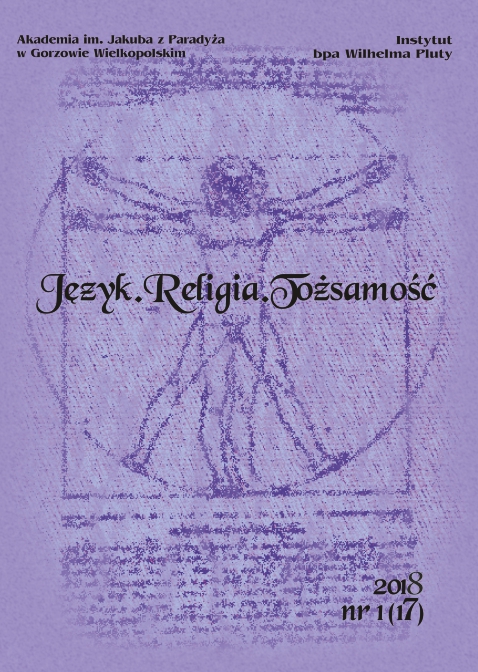Prīti jako koncepcja soteriologiczna w wisznuizmie bengalskim na podstawie „Pritisandarbhy” Dziwy Goswamina
The concept of prīti in Gauḍīya Vaiṣṇava soteriology
as described in Jīva Gosvāmin’s „Prītisandarbha”
Author(s): Dagmara WasilewskaSubject(s): History of Philosophy, Philosophical Traditions, Special Branches of Philosophy, Sociology of Religion
Published by: Akademia im. Jakuba z Paradyża
Keywords: filozofia indyjska; wisznuizm bengalski; wyzwolenie; Dziwa Goswamin
Summary/Abstract: Since philosophy in the Indian cultural context is exceptionally practical, the pursuit of liberation from all sufferings is an inseparable part of all Indian philosophical and religious thought. Final emancipation (mokṣa) is considered to be the most important and ultimate of the four classical goals of life (puruṣārtha). Among the Indian concepts of liberation those of the theistic schools deserve special attention as they are still a relatively underrepresented minority. The concept of liberation in a theistic sense takes its full shape in the mediaeval Vaishnava bhakti traditions. No less significant than the soteriological concepts of such great Vaishnava philosophers as Rāmānuja, Madhva or Vallabha, is the ideal of prīti described in detail by Jīva Gosvāmin in his text called Prītisandarbha. This paper is devoted to the analysis of the meaning and role of prīti ‑love ‑in the Vaisnava soteriology contained in this yet unknown to the western audience text.
Journal: Język. Religia. Tożsamość
- Issue Year: 18/2018
- Issue No: 2
- Page Range: 179-196
- Page Count: 18
- Language: Polish

